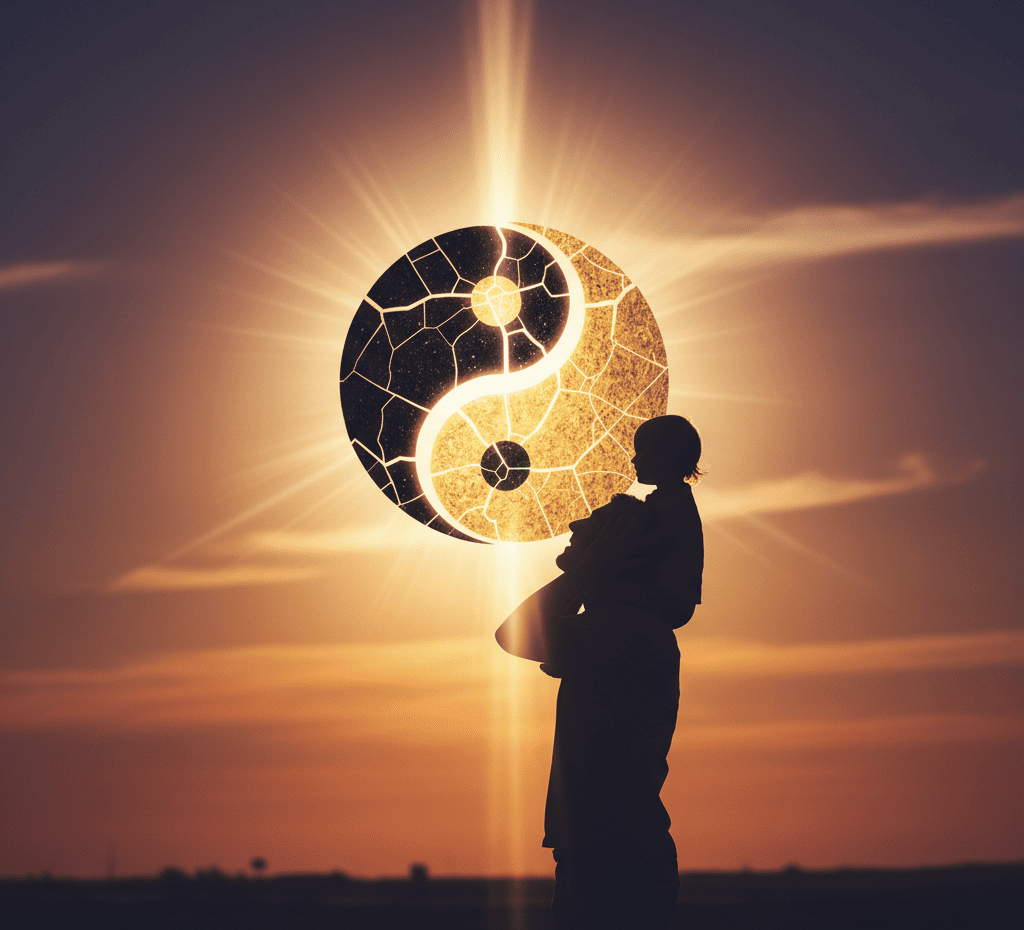This is probably my 20th attempt at writing this. Something always felt off with every previous draft I wrote. And somehow, the first 27 years of my life felt like a similar struggle all throughout.
My whole life, every fragment of my being belonged to one of two warring camps inside me: ‘what I am’ vs ‘what I am expected to do’.
A stalemate ensued, and the fighting never ceased until the day my wife and I found out that we are having a daughter.
My father started working at the tender age of eleven. He was expected to be the man of the house before he was even a child. He had to provide for his family at a time when they could barely survive. They had fled the war in Lebanon back in ‘75 and were trying to find their feet in Venezuela – a country where getting robbed and assaulted every few days was absolutely normal.
So he made something out of nothing in the years that followed and built a stable business for his parents, before he married my mom and a while later, they were expecting, and then I came along. After my birth, they decided that Venezuela wasn’t where they wanted to raise me, so we moved to Romania where my father had to start over. And he did.
In the year 2000, he found himself in a familiar spot, we were already in Lebanon, and he was around 30. He had nothing but some savings from the Romanian adventure. And he had to start over – again.
Back then, you could raise a family in Lebanon, but starting a business there was too risky. The economy was in shambles.
So he set his sights on a country where a 27-year civil war had been coming to an end: Angola. It was no place to raise a family although the economic opportunities were immense, so my mother and I stayed in the relative safety that Lebanon provided among family members and loved ones, and he went on to build the fortress that provided the safety and stability we craved for years to come.
By mid-2019, I was graduating from the American University of Beirut, and it was just another testament to what this man – my father – had built from scraps over the years. I had a degree in Business Administration from one of the most prestigious institutions in the Middle East, and it was all thanks to him. Now, it was my turn to carry on the legacy that he had spent the better part of his life building.
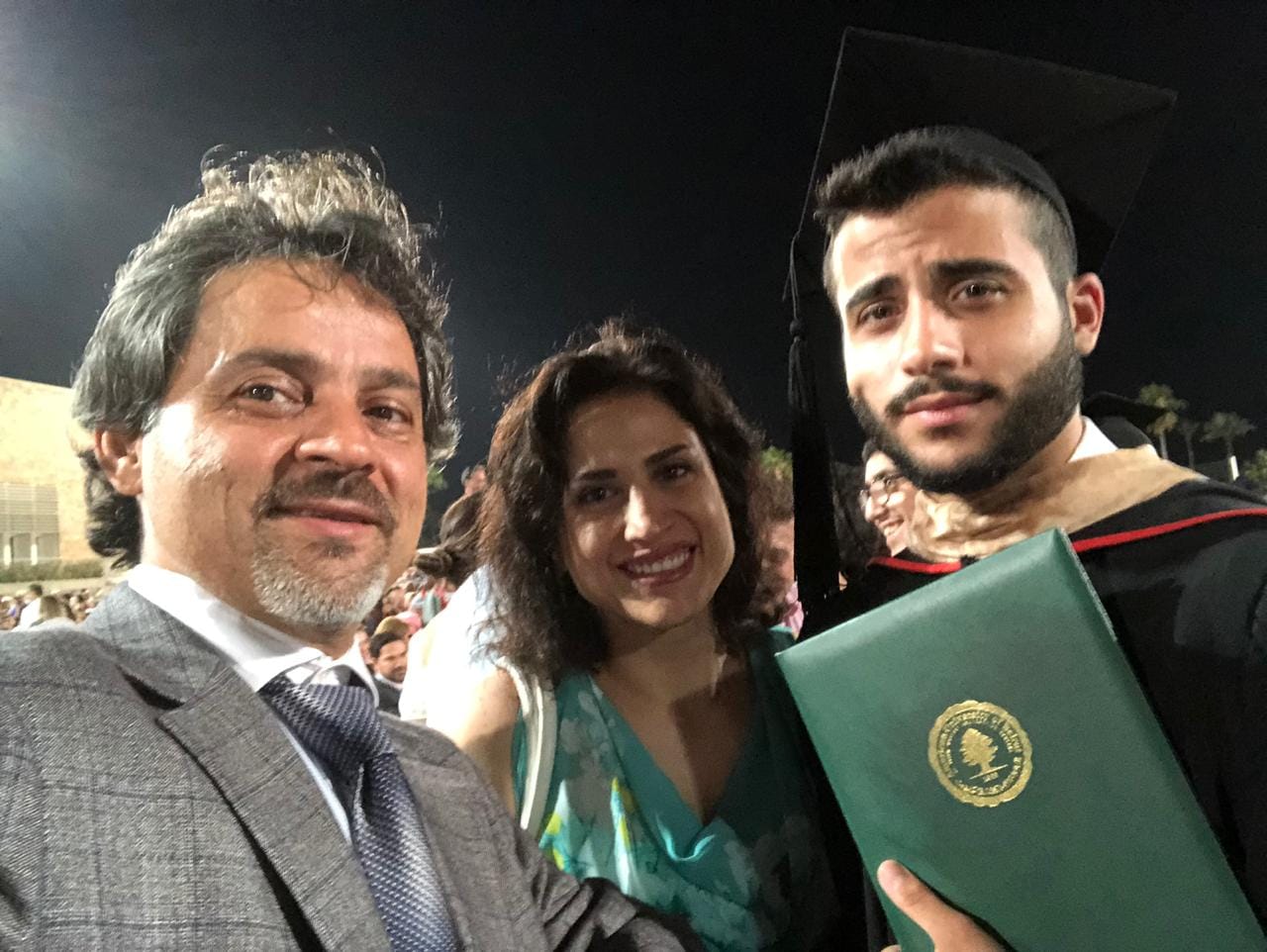
So I did what was expected of me, or at least tried to. I owed it to him.
At the time, I was just finishing my internship at Kashida Learning in Beirut,
an e-learning company that had immense impact on how I viewed business and life. Raneem and Ruba – the founders – were supportive and generous during my whole time there. I can’t thank them enough for the opportunities they gave me despite them knowing that I was bound to join my father when the internship was over. Not many business owners would do the same.
That same year – 2019 – I met my soulmate, Christina, and my being gravitated toward her from day one. But I was at a time in my life when I knew that I was destined for Angola, and considering that marriage wasn’t part of my plans back then, we decided to break up, and it was the most difficult decision I ever had to make. Seeing how my mom lived continents apart from my dad didn’t help. I did not want to live through that pain of a long-distance relationship, or put Christina through it. So I cut the first piece of my heart out – and probably the most significant one – and I made it to Angola.
I remember my first few months there. My dad wanted me by his side the entire time, as we visited every store the company owned, and they were many. I got to meet every client, every supplier, and I got to learn all the intricate details of the business. We went on fancy dinners, we traveled to trade fairs in Dubai and China, and I lived through a phase in my life that's anyone's dream: I worked hard, and played harder. And as I did so, I made my father proud.
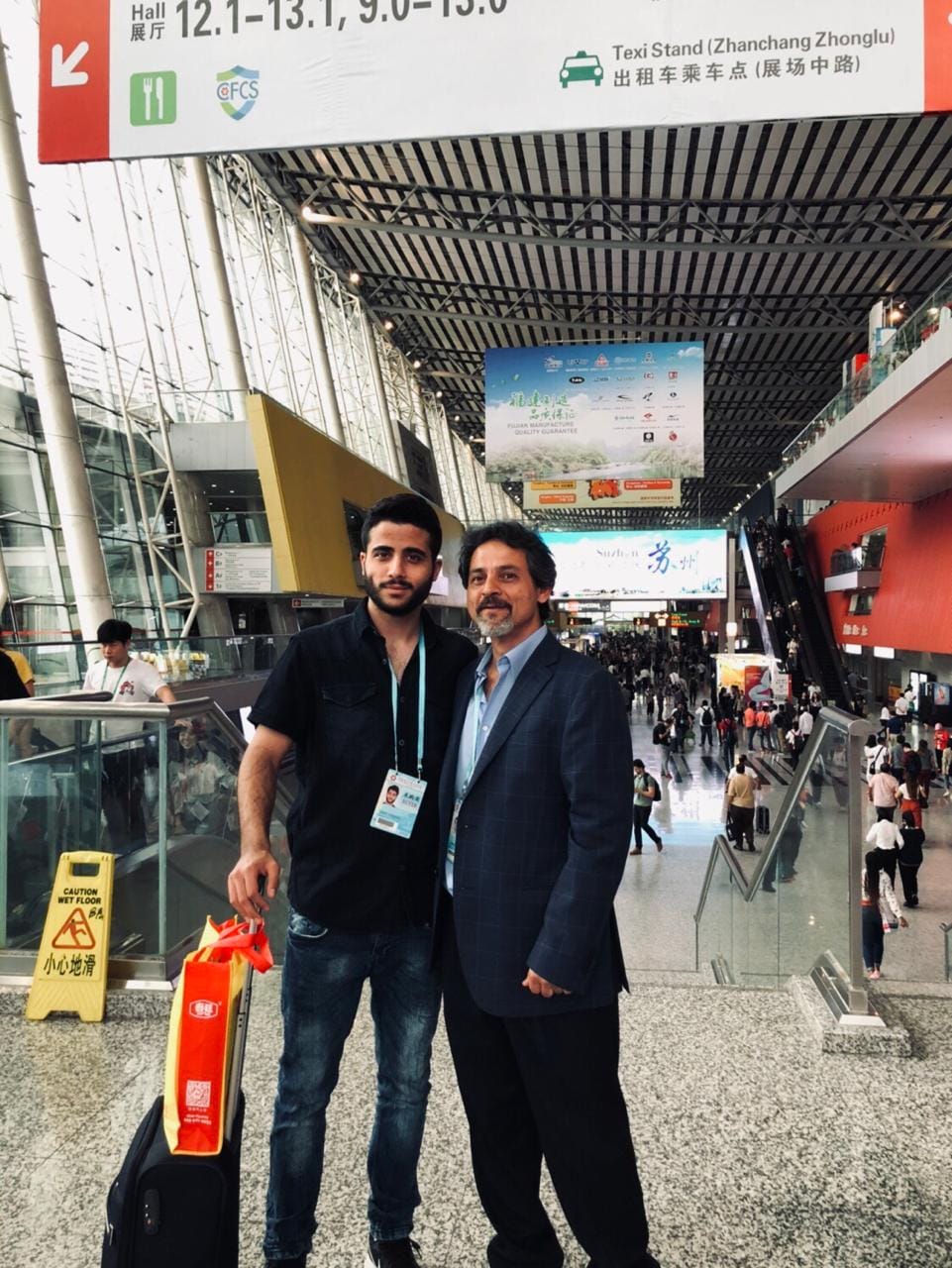
On paper, it was perfect. I was carrying on the legacy that he had built.
But something always felt missing.
I worked on filling that void with harder work during the days and harder play at night – more addiction, more sex, more alcohol, more parties, more gaming. But here’s the thing about play. Playing for the sake of play is fine, it’s fun. But playing to fill a void? Now that’s different.
And after realizing how unsustainable that was, I started to look for love – the love I had sacrificed years before. But I didn’t love myself. So I didn’t really know what I was looking for.
Christina had shut me out completely by then. And no one else could fill the space she left. I didn’t realize that at the time, so I kept on trying. Until the fateful day when I found out that the only place she hadn’t blocked me on was LinkedIn.
The irony was that after years of Tinder Premium, I met the love of my life
through LinkedIn. I wasn’t going to waste that chance, so in November of 2024, we got married in Lebanon despite the raging war. Some decisions can't wait for perfect timing.
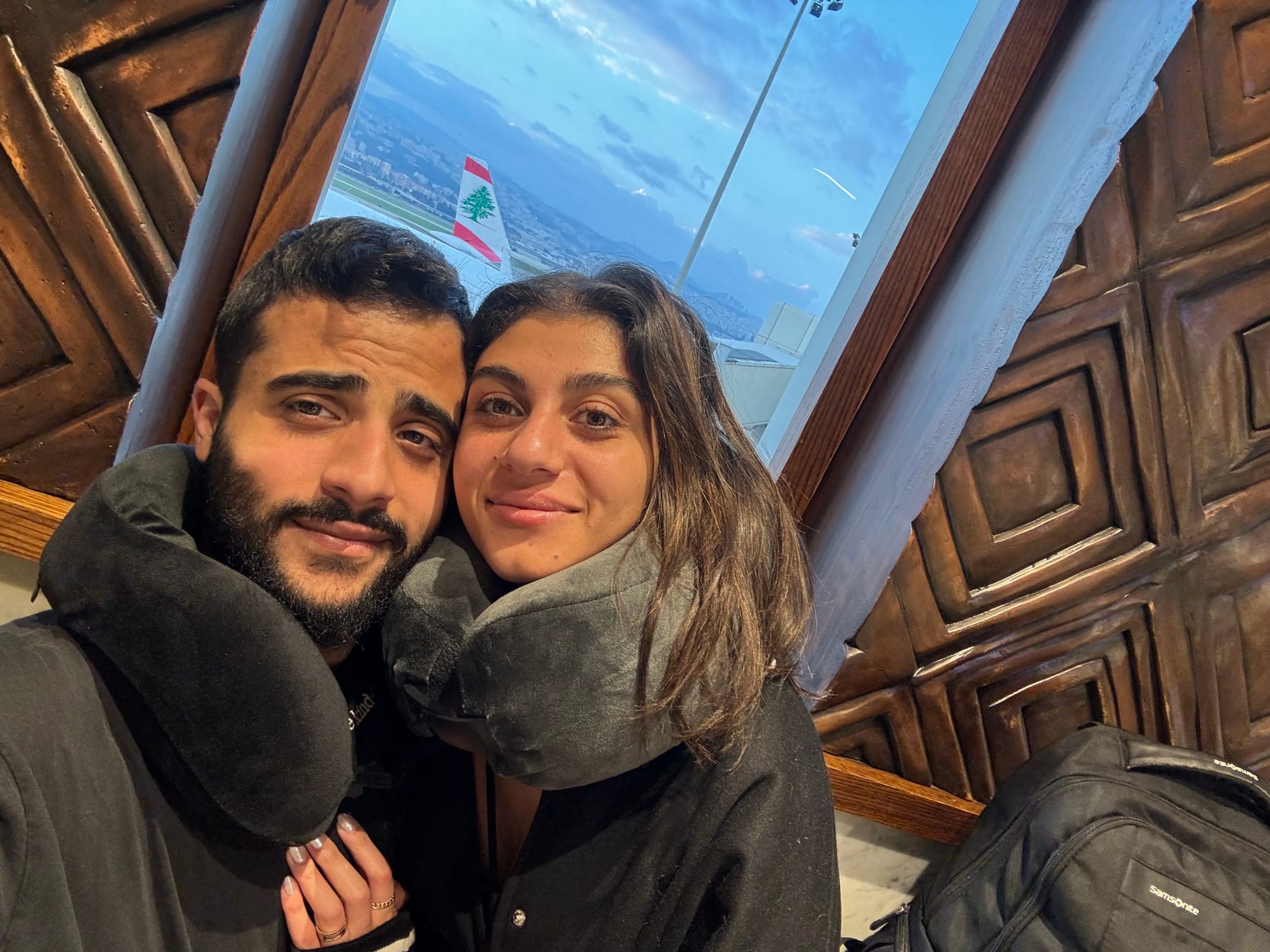
I was back in Angola by February – with Christina this time around. Something was still missing though. But this time, I didn’t get that feeling alone. I was no longer lonely on my own. This time, we were lonely together.
On a typical Tuesday morning in mid-April of 2025, Christina and I woke up at 7 AM. We zombied our way to the office, we prepared our coffee, and I rolled 2 cigarettes for us – the usual morning routine.
But that day, she didn’t want to smoke. And I didn’t understand why until I opened my laptop on the desk and found this inside:
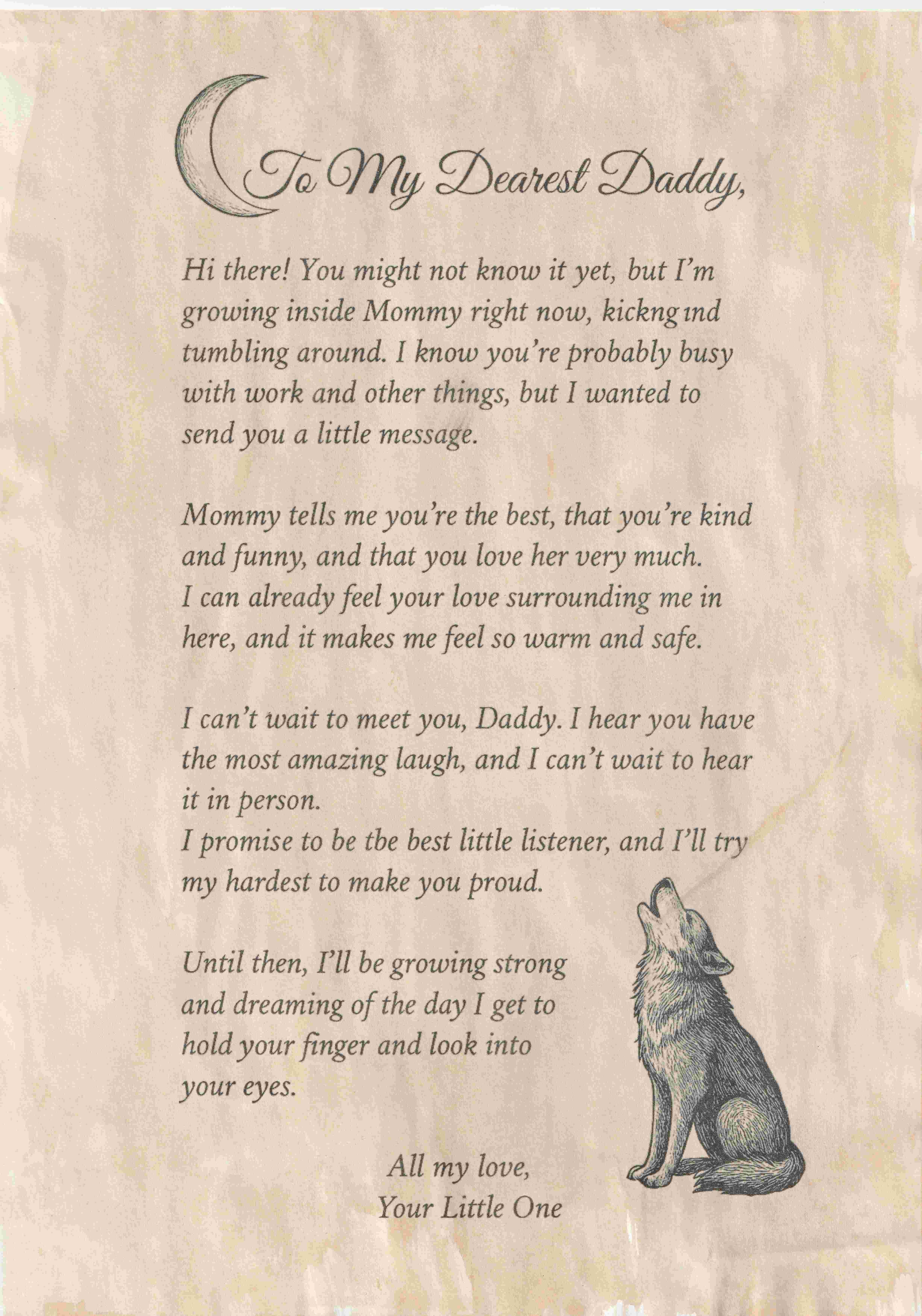
This is the part where my writing fails me. No words can describe what a man feels in a moment like this. I was ecstatic. I was in tears.
Nothing I had ever felt came close to that moment. I was going to be a father. The love of my life was going to be a mother. And Reina Naya was the beautiful soul that was going to make that happen.
My father always told me:
You will never understand a parent’s love for their child,
until you become a parent.
I couldn’t work that day. All I could think about were his words and his actions back when I was born. My father left the life he built in Venezuela behind. He didn’t even hesitate. And he did it for us – for my mother and for his newborn son.
This was the day I realized that I had to do the same. It was the day I realized that “what I was expected to do” was inherited. It was never mine. And in that moment, I had to face the other camp – “what I was” – and for the first time, I admitted to myself that I did not know what I was. In the struggles of a life of doing and doing, I forgot who I was all along.
The stalemate of the two camps was broken. The fog of war had subsided. The fear of the unknown was finally outweighed by the anxiety of what we did know, and what it meant to stay in Angola. The life we had been living was not our own, and the war within was the pointless consequence of the inherited path we walked.
So I looked up to Christina and said: “We have to leave.”
She was relieved. But we were terrified. We had no plan B. No alternative income. And a child on the way.
Then came the conversation with my dad. He responded with silence. But I could see a quiet understanding in his eyes. He took a similar decision once upon a time. And now, he was watching me take mine.
Within a month, we were in Lebanon.
For the first time in my life, I had nothing I was supposed to be doing. No legacy to carry. No role to perform.
And in that stillness, the question stopped being about what I was expected to do.
It became about who I am.
I spent weeks with that question.
Who am I when I strip away the business, the legacy, and the expectations?
My wife would find me staring at nothing, lost in thought. "You're doing the philosopher thing again," she'd say. She wasn't wrong.
But this wasn't philosophy for philosophy's sake. This was about survival. Because I couldn't build a life for Reina if I didn't know who was building it.
And then one morning, as watched Christina sleep, my hand resting on her belly as Reina kicked around, something clicked.
It begins when the ends of a duality come together –
not in fusion, but in creation.
from that act of integration,
fragmentation unfolds:
from the cells, to the selves,
to everything in between.
And every fragment becomes a world of its own,
until it remembers the whole that holds it.
Those words surfaced in a moment of stillness. They came to me as I thought about Reina. And I know how they sound. If I'd been told five years ago that I'd be writing about 'dualities' and 'integration' now, I would've rolled my eyes and gone back to whatever I'd been doing.
But here's the thing: Every breakthrough humanity has ever made came from watching nature closely enough to see the pattern within the chaos. Gravity wasn't invented – Newton noticed an apple fall. Evolution wasn't created – Darwin observed birds.
And this pattern isn't my invention. I just finally saw it – in Reina's beginning, in my collapse, in everything. Her coming into being was the ends of a duality coming together – not in fusion and not in war, but in creation. The masculine and the feminine. The sperm and the ovum.
And in that, I finally understood my 20th attempt at writing this and the 27 years of struggle. And it all came from that warring duality within me.
My whole life, I gravitated between the two camps – the ends of my duality, my own masculine and feminine – what I am, and what I am expected to do.
I always felt like I had to make a choice. I believed that one camp must prevail. I didn’t know otherwise.
But as long as one had to prevail, there was never any chance of them coming together. There was only war. And creation does not come in victory, but in surrender.
The sperm and ovum don’t fight for dominance. They don’t hold on too tight to what they are.
They let go.
This isn't a metaphor. This is biology. It is literally how life begins.
Two complete, functioning cells can't merge. They must first dissolve their boundaries to create something neither could create alone. And in that mutual surrender of their individuality, they create that first cell.
And when I saw that, I realized I'd been trying to win my internal war my whole life. Trying to prove "what I am" mattered more than duty. Or that duty mattered more than "what I am".
But that's not how creation works. Not in cells, and not in lives. That moment of integration created a lifetime of potential for Reina. And it unlocked mine.
The stalemate in my soul broke when both ends of my duality surrendered. They too let go.
And as the war ended, a realization emerged.
‘What I am’ does not do. It simply is.
‘What I am expected to do’ is the doing.
And they were never enemies. They are the missing pieces of each other.
My whole life, I was at war because I didn’t know ‘who I am’. Instead of figuring that out, I took on an inherited script, an inherited 'doing'.
That’s why ‘what I am’ was left out entirely. That’s why I forgot who I was to begin with. That’s why I felt a void I could never fill. That’s why life felt like a struggle, like suffering.
Integration is the moment that ends that suffering. It is the moment when duality remembers that it was never divided, the moment when what you do is informed by who you fully are.
I get it if this sounds like awakened coaching boohoo. Integration. Being. Doing.
But let me put it this way:
For as long as I can remember, I tried to optimize my life like a business. I tried to weigh the pros and cons of every choice. I had KPIs for everything and measured all what I could count.
But the choices didn't get any easier, and I couldn't count the thing that ate me alive: I had no idea who I was when no one was watching.
That's what "being" means. It's not just some mystical essence, but a fundamental question: who are you when you're not performing?
And "doing"? That's everything you build from that place.
The problem wasn't that I was doing too much. It's that my doing had no source. I was building a mansion on a foundation I'd never examined.
Integration simply means: know your foundation first. Then build.
Going back to the quote, ‘from that act of integration, fragmentation unfolds –
from the cells, to the selves, to everything in between. And every fragment becomes a world of its own, until it remembers the whole that holds it.’
Reina’s first cell must divide into billions. As she grows, she must develop different selves to navigate the world. A self for school. A self for family. A self for when she's alone. This fragmentation is the natural, necessary expression of life.
These ‘selves’ aren't the enemy – they're the tools of ‘doing’. They are how we connect, work, learn, love, and belong.
My own 27-year struggle wasn’t because fragmentation exists, but because I allowed one fragment to declare itself the ruler and silence all the others. The inherited script of ‘what I was expected to do’ dominated everything, and my ‘doing’ completely forgot my ‘being’. The fragments I inhabited forgot the ‘whole that holds them’.
But integration isn’t a one-time event where all the fragments disappear, but the beginning of a living relationship between them – the moment when Being returns to its rightful place as the source of Doing, the moment when the ‘I am’ becomes the quiet center around which all selves orbit.
And from that center, life becomes creation again. Every act of doing flows from what I am, and every fragment remembers the sovereign whole that holds it.
This is the remembrance.
From it, Reina began. From it, I was reborn. From it, my work emerged as the only honest mission that truly fulfills me: helping others remember the whole that holds them too.
You might be wondering: why does any of this matter?
It matters because the question my daughter will one day ask me won't be: "Did you run a successful business?"
It'll be: "Dad, how do I know what I'm supposed to be doing with my life?"
I can't answer that for her if I never answered it for myself. I can't tell her "follow your passion" if I never found mine. I can't tell her "be yourself" if I never figured out who that was. So I had to go deeper.
If "what I am" is the foundation and the source that informs all my "doing", then what is it made of?
What is the source itself?
The ancients had a name for it. They called it Genius.
If this resonates, and you're ready to see how we can work together

